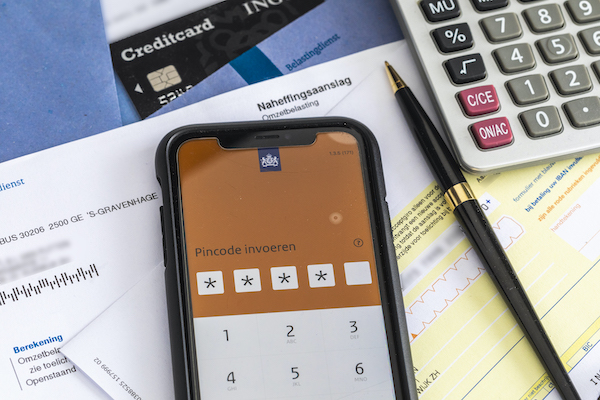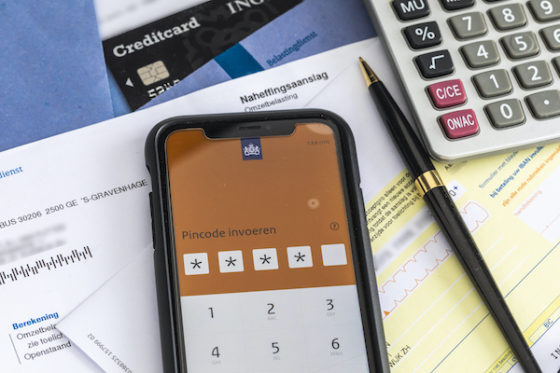Talking taxation: four issues which you might not have thought about


The Dutch tax office has an advertising slogan about making it easier to sort out your tax affairs, even though this is something nobody likes to do. But can everybody file their taxes without the help of a specialist? And what is the impact of coronavirus and remote working likely to be on your 2021 tax return?
‘Of course, if you have a straightforward job, don’t own a house and speak Dutch you can file your taxes pretty easily,’ says Lennart Suurmond, from tax advisory company J.C. Suurmond Tax Consultants. ‘But not everyone is in that position, particularly if you are an international employee.’
Lennart and his colleagues have been helping international employees with their tax returns for years and have watched as the process has become both simpler, and at the same time, more complicated.
‘Internationals often do not fully understand the tax system because most of the information is in Dutch and is complicated for native speakers at the best of times,’ says Lennart. ‘They may not be aware that changing your job, starting a pension scheme or buying a house have consequences for tax.’
Coronavirus
The current situation with coronavirus is a case in point. ‘Now that more people are working from home, your tax situation may change,’ he says. ‘Some of our clients have gone back to their home countries to wait out the epidemic while working remotely but this may well have an impact on their taxes.’
One aspect of this is the little known tax clause called the 183 day rule. ‘In effect this means that if you are abroad for longer than that in one tax year, your salary could be taxable in the other country,’ says Lennart. ‘The same would apply if you were forced to work in the Netherlands temporarily, but your employer is based in another country.’
‘We have a client who was visiting his family abroad and was stuck there when the coronavirus crisis hit,’ says Lennart. ‘This is a new situation and we don’t yet know if the tax office is going to be flexible about it. Tax wise your physical work location is very important. And having an advisor can help you keep on top of the implications.’
Assets abroad
If you have a house, savings, pension or fund in your country of origin, or indeed, anywhere else, you will have to declare them in the Netherlands for tax purposes. If you are covered by the 30% ruling you can opt for non domestic taxpayer status and be exempt from declaring worldwide assets. But that stops when the ruling stops – something not everyone is aware of either.
The Dutch tax office gets plenty of information from foreign banks about accounts as well, so don’t think you can get away with not declaring your foreign assets, says Lennart. ‘The upside is foreign real estate for which the Netherlands usually grants a full double taxation deduction. In any case, seeking tax advice in an early stage can save you money.’
Take Liz from the UK whose 30% ruling period will end on January 1st 2021, making her taxable in the Netherlands on her worldwide assets. She will have to pay more tax, but she might, says Lennart, be able to cut the amount by paying off part of her Dutch mortgage, for example.
Leaving the Netherlands
Many people think they have to sell their Dutch property if they leave the country, but they don’t. And if you can rent it out, your home in the Netherlands can be a useful source of income. Your Dutch property remains taxable in the Netherlands as an asset, so you will have to file a Dutch tax return, but your property and any related mortgage are the only things you will need to include.
‘One of our clients, who had lived in the Netherlands for 10 years, moved to abroad in 2019 for work,’ says Lennart. ‘While he was away, he rented out the property, and his only income in the Netherlands came from the house and some interest from bank saving accounts.’
Similarly, if you live in the Netherlands and own a house abroad that you are renting out, the tax relating to this property is minimal due to double taxation deduction. The rent received is not taxable in the Netherlands. A tax advisor can arrange this deduction for you.
Self employment
Suurmond’s business tax specialist Roderik Suurmond says he sees it as a challenge to help his clients, especially the self-employed, keep their tax payments as low as possible. ‘Take Lisa, one of our clients who worked in the events industry in the form of a sole proprietorship or one-woman company. When her partner Tom moved to the Netherlands, we were able to set up a unique fiscal structure for them, so Tom could make use of the 30% ruling.
‘Their income has dropped dramatically due to the coronavirus crisis but they have also been able to successfully request wage subsidies for Tom via the government’s Now scheme.’
The success of this strategy was, says Roderik, only possible because Suurmond Tax Consultants was brought in at an early stage, so the situation could still be structured in the most beneficial way. ‘We don’t call what we do untaxing taxes for nothing,’ he says, with a smile.
If any of this situations could apply to you, or you have any other questions about your tax affairs, feel free to get in touch.
Thank you for donating to DutchNews.nl.
We could not provide the Dutch News service, and keep it free of charge, without the generous support of our readers. Your donations allow us to report on issues you tell us matter, and provide you with a summary of the most important Dutch news each day.
Make a donation